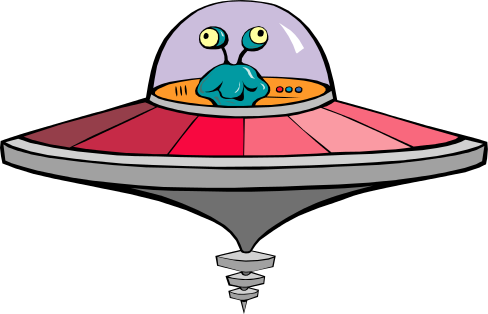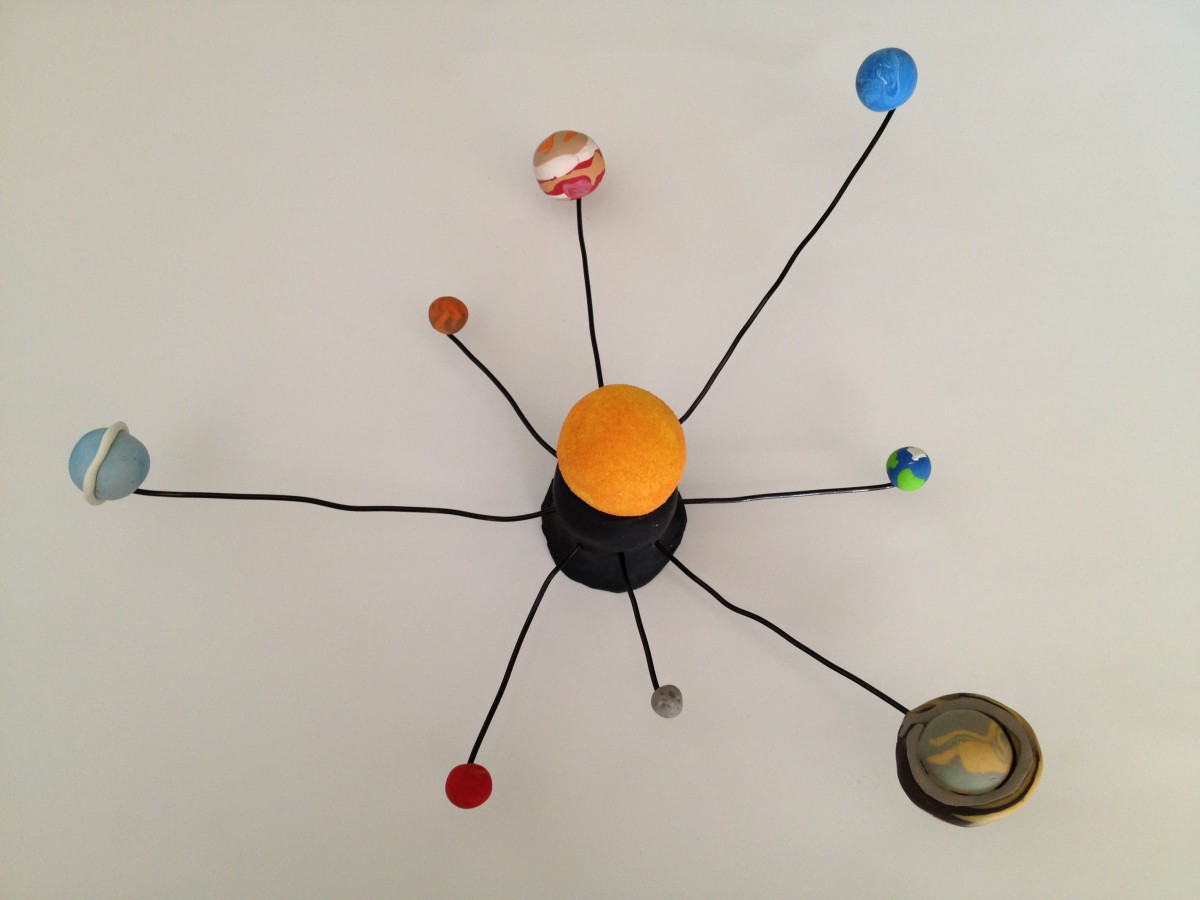What is the measure of Intelligence?
Sometimes it's easy to spot intelligent life

Disclaimer
Disclaimer: This article is not about the accuracy or validity of I.Q. tests or any other measure of human intelligence. It is intended to discuss means that may be used to asses the presence of intelligent thought processes in hypothetical non humans including extra-terrestrial life and thinking machines.
Terms used to describe "intelligent life"
- Sapient - Definition and More from the Free Merriam-Webster Dictionary
Definition of sapient from the Merriam-Webster Online Dictionary with audio pronunciations, thesaurus, Word of the Day, and word games. - Sentient - Definition and More from the Free Merriam-Webster Dictionary
Definition of sentient from the Merriam-Webster Online Dictionary with audio pronunciations, thesaurus, Word of the Day, and word games. - Conscious - Definition and More from the Free Merriam-Webster Dictionary
Definition of conscious from the Merriam-Webster Online Dictionary with audio pronunciations, thesaurus, Word of the Day, and word games. - Intelligent | Define Intelligent at Dictionary.com
Intelligent definition, having good understanding or a high mental capacity; quick to comprehend, as persons or animals: an intelligent student. See more. - self-aware - definition of self-aware by the Free Online Dictionary, Thesaurus and Encyclopedia.
Definition of self-aware in the Online Dictionary. Meaning of self-aware. Pronunciation of self-aware. Translations of self-aware. self-aware synonyms, self-aware antonyms. Information about self-aware in the free online English dictionary and encycl - Creativity - Wikipedia, the free encyclopedia
What is intelligence?
Sapient. Sentient. Conscious. Intelligent. Self aware. All terms used in Science Fiction to try to describe one thing, a non human possessing an intellectual capacity equivalent to that of humans. In stories involving alien life, especially golden age sci-fi first contact stories, they are used to determine whether a newly encountered alien species qualifies as people or just a new kind of animal. In stories about artificial intelligence they describe whether the machine can think for itself. Though in stories about synthetic minds the term creativity often finds its way into the mix. Many stories take for granted being able to tell the difference between our intellectual equals and less developed minds and sometimes it is a rather clear difference. If an alien lands it's ship on the white-house lawn or a computer starts asking questions it's not programed for there is clearly some form of intelligence present. Even in such clear cut cases, there can be room for ambiguity. If two radically different creatures emerge from the aforementioned spacecraft are they equal representatives of different alien species, a master and pet or members of a single species with extreme sexual dimorphism. Answer carefully, getting it wrong might cause an inter-stellar incident.
Golden Age Science Fiction
Sometimes it's not so clear cut.

Spearfishing Orangutans?
Is there a qualitative difference?
The distinction in fiction is rooted in our almost instinctive belief that there is some qualitative difference between humans and other animals in the real world. That we are not just smarter than other life forms but smart in a different way than any other creature. At one time, it was widely taught that humans were the only tool using species. Then Otters using rocks to break open clams became more widely known. Next, it was affirmed that we were the only tool makers, since the simple otters just found their rocks lying about. Then reports of chimps making termite “fishing poles” were brought to the public. More recently photographs of orangutangs spearfishing circled the internet. So is their a difference between humans and other animals? Is our intelligence qualitatively different? If it is, how can we recognize that difference in other creatures?
Measuring machine minds
What is humor?
The Turing test in action
Artificial Minds
In the case of a mechanical mind Alan Turing posed his famous test in 1950 to, essentially, discern thought in machines. Other tests have also been proposed but Turing's is the most famous. Of course Turing is not without his critics. One obvious question about the test is, what if an electronic mind doesn't imitate human thought processes? An example of the Turing test in film can be found in Short Circit where Number Five must convince his creator Newton Crosby that he is “alive.” Strangely, it is not the robots affirmation of personal moral choice or it's ability to use it's imagination on an improvised ink blot test that persuades it's creator. Rather Crosby is persuaded by Number Five having an emotional response to a joke. Why should a non human have a sense of humor? Apparently psychologists can't even agree on why we have one. It might be a bit much to expect one to exist in an electronic or alien intelligence. It might be an even greater mistake to assume that a nonhuman will share our idea of what's funny, even if it has a sense of humor.
Talk and build a fire?
Manipulators, language and records
Alien minds
Aliens are another story entirely. If an alien is piloting a spaceship, be it a War of the Worlds invader or “Star Trek” deep space encounter, it's clearly at least as intelligent as we are, if not smarter. However, depending on the circumstances even an alien on a ship being our equal may not be clear cut. Is a creature on a one entity craft the pilot or an experimental animal being used to test the safety of interstellar travel for the ships creators. If a ship is a derelict with no survivors how do you know which bodies aboard are the remains of crew, which might have been livestock, and which were vermin. At least the presence of a spacecraft proves there is an intelligence somewhere. Meeting an alien on it's home-world, especially a member of a species that hasn't yet developed spaceflight or even radio is much less straightforward. Brute instinct can create amazing structures as evidenced by termite mounds and wasps nests (assuming they are not smarter than most people think). How then can you tell if something is the result of intelligence? Is it any wonder than science fiction writers generally confine stories of alien contact to post bronze age races. It is far easier to acknowledge intelligence in a race with metallurgy and move on with the story. Of the few who have delved into the borderland between intelligent race and clever animal, it's possible that none have created a more succinct rule of thumb, to differentiate that border, than H. Beam Piper did with the “Talk and build fire,” rule of his Terro human Future History stories. Even with that rule though, Piper's Little Fuzzy's title character was of an intelligent species whose language was ultrasonic, preferred their food raw and had to have it's rights defended in court. Another, less succinct, rule was proposed by Robert Heinlein in the Star Beast where an intelligent race needed language, manipulators and to combine the two for record keeping. It is worth noting that the treecats of David Weber's Honorverse would, at first glance, fail both tests. Although they do use fire and have manipulators the treecats, being telepathic among their own kind and empathic with other species, had no spoken language or written record (though their telepathically conveyed history was quite extensive). When you come down to it, there are no easy answers.
How do you measure it?

How do you measure a mind?
So how do we measure whether a nonhuman mind has the qualitative difference that divides us from the animals? Is their really such a difference or is it just that our species has had more incentive to use tools than other species, culminating in an unbridgeable technological gap? Perhaps there is something in our tool use that differentiates us despite not being alone in using or creating them. We seem to be the only species that makes a tool for no purpose other than constructing another tool. Is it the ability to think at the abstract level required to make tools for tool making that differentiates us from the rest of the animal kingdom? Is this the qualitative difference between humans and other species? If so, that may be what we need to look for to find our peers among other forms of life. There may also be ways to apply this distinction to electronic minds, though it might take a software expert to discern what sort of tool making tools an artificial intelligence might devise.











